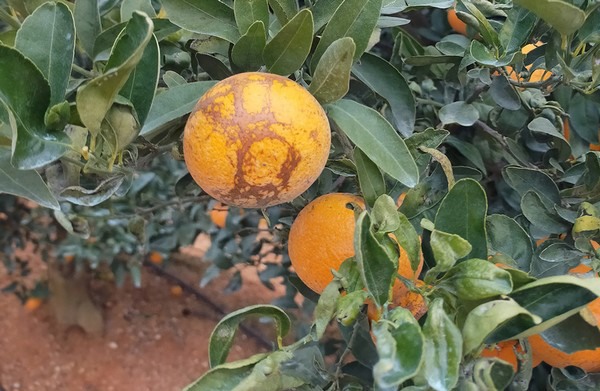The Valencian Association of Farmers (AVA-ASAJA) calls for extreme control measures to stop the advance of the Scirtothrips aurantii quarantine pest, which has expanded both geographically and in the number of crops it's affecting since it was detected in Spain in 2020.
According to the latest bulletin issued by the Junta de Andalucia, plots located on the border of Lepe, in the province of Huelva, and Bollullos de la Mitación, Espartinas, Gelves, Lora del Río, and Seville, in the province of Seville, where detections occurred in 2022, have been declared infected by the Scirtothrips aurantii pest. Authorities have verified that this pest has affected orange, mandarin, kaki, avocado, strawberry, raspberry, and blueberry crops.

Portugal has also confirmed the presence of Scirtothrips aurantii in 12 localities in the Algarve region and in one locality in the Alentejo. The infested plants identified, to date, belong to mandarin, lemon, apple, evergreen shrubs, and wild blueberry.
In addition to the actions implemented - establishment of the demarcated areas that form the infested plots and a buffer zone of 100 meters, as well as mandatory phytosanitary measures for their eradication -, AVA-ASAJA requests the Generalitat Valenciana maximum prevention measures and strict compliance with this measures to prevent this pest from entering and affecting autonomous agriculture.
"In this campaign, AVA-ASAJA technicians have confirmed in situ that there are Huelva fields where more than 60% of the citrus fruits are affected by Scirtothrips aurantii. The typical damage this pest causes in oranges and mandarins is a ring-shaped grayish scar, usually in the area near the peduncle, which is separated from the chalice when the fruit grows, rendering the fruit unmarketable."
AVA-ASAJA has also warned of another pest which was detected in 2016 in the province of Alicante: Scirtothrips dorsalis, known as chili thrips or yellow tea thrips. The Ministry of Agriculture reported its presence in plots of Albatera, Callosa del Segura, Cox, Granja de Rocamora, and Orihuela, where it caused crop declines due to the massive fall of flowers and the qualitative depreciation of fruits. This pest is also being eradicated within the area demarcated by the Generalitat Valenciana, which has established mandatory phytosanitary measures including the prohibition of taking out plant material, with the exception of fruits and seeds, from this area. AVA-ASAJA reiterated the need to take forceful actions because it is a polyphagous pest that can affect citrus, vine, pepper, and other crops."
For more information:
AVA-ASAJA
Tel.: 96 380 46 06
[email protected]
www.avaasaja.org










